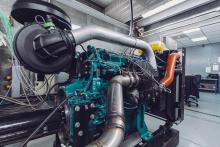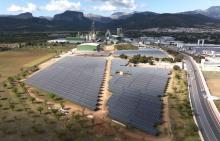
The aim is to bring together experts from different fields and industries. These shall identify technical, regulatory and infrastructural challenges along the entire hydrogen value chain, as well as develop corresponding overarching approaches to solutions.
"The gradual transition from fossil to renewable energy is not just about replacing one form of energy with another," said Dr. Michael Hofmann, chief technology officer at ContiTech, at the opening ceremony. "Rather, the transition entails a transformation in all industries and sectors. In this context, the potential of hydrogen is enormous. In the future, it will play a crucial role in decarbonising various industries in the production, storage and transport of green electricity. Our decades of materials expertise in a wide range of industrial applications enables us to work with partners to develop products and solutions that meet the new requirements."
Dr. Piero Mancinelli, head of TechCenter Hydrogen Technologies, added: "We will see relevant industrial use of hydrogen as an energy carrier as early as 2030 and exponential growth in applications in industry, heat generation and mobility in the following years. This broad spectrum requires joint efforts by a wide range of players. Hamburg offers excellent conditions to develop hydrogen technologies in an overarching approach."
Continental and Renewable Energy Hamburg Clusteragentur (EEHH) organised a Hydrogen & Transportation forum on Wednesday, July 5th, in the Innovation Hub located at the Innovation Hub on Continental's factory premises in Hamburg-Harburg. EEHH has already established a strong network of more than 100 "hydrogen players", i.e., mainly small, medium and large enterprises and R&D partners. In addition, it created excellent framework conditions through joint activities for stakeholders from local politics, industry, universities and research institutions, dealing with topics in the field of hydrogen technologies, legal questions and economic demands.
With more than 50 participants from different industries and scientific institutions, the event allowed exchange and networking among stakeholders focusing on hydrogen activities.
Industrial processes produce hydrogen, an energy carrier that must be stored and transported. Currently, there are various solutions for the transport: compressed hydrogen with a pressure of up to 700 bar, cryogenic liquid hydrogen with temperatures below minus 253 degrees Celsius, or hydrogen combined with nitrogen to obtain ammonia, which is split again after transport. It is also possible to combine hydrogen with other organic liquids.
These different transport conditions require an extensively prepared infrastructure along the entire hydrogen value chain. To ensure that the hydrogen arrives safely at its destination, hoses, lines, seals and fittings, containers and means of transport must have suitable properties, such as pressure or temperature resistance. The selection and development of appropriately suitable materials is a key success factor for the extensive future use of hydrogen.
Continental's extensive technical expertise in handling a wide variety of gases and liquids in the classic industrial sectors, for example, in the oil and gas business, is now also benefiting the company in developing completely new products that meet the significantly changed requirements of the new energy carriers.









